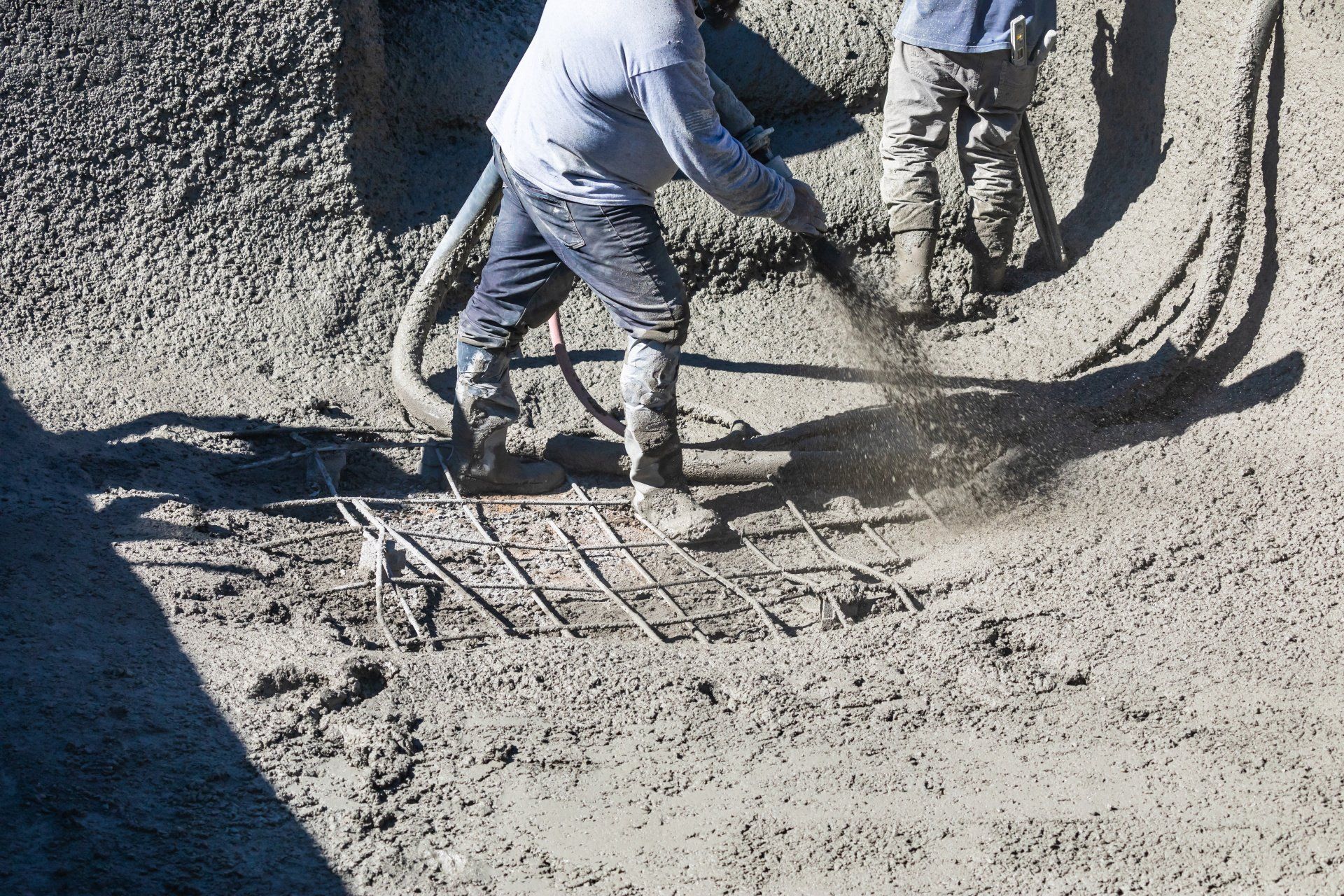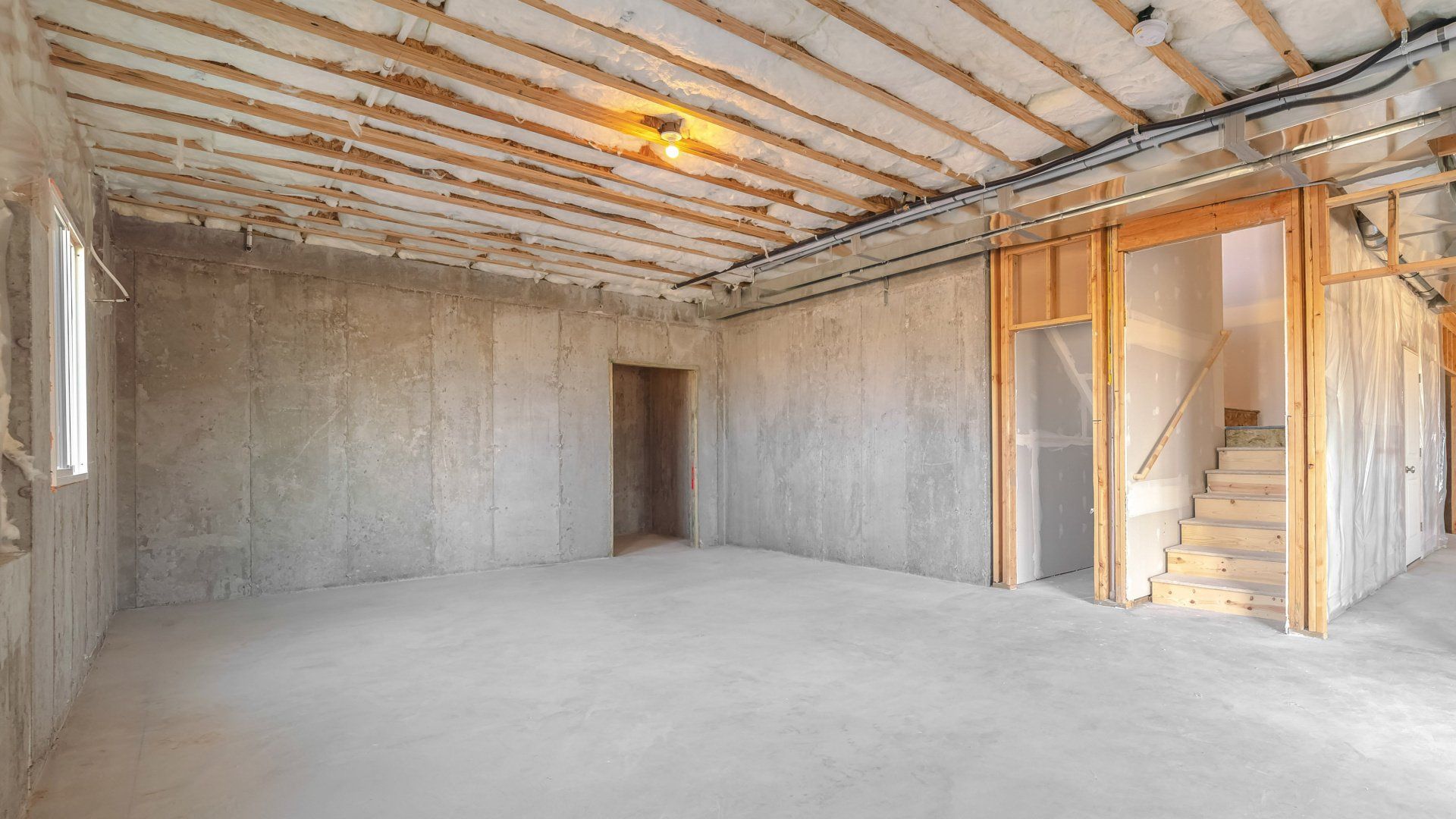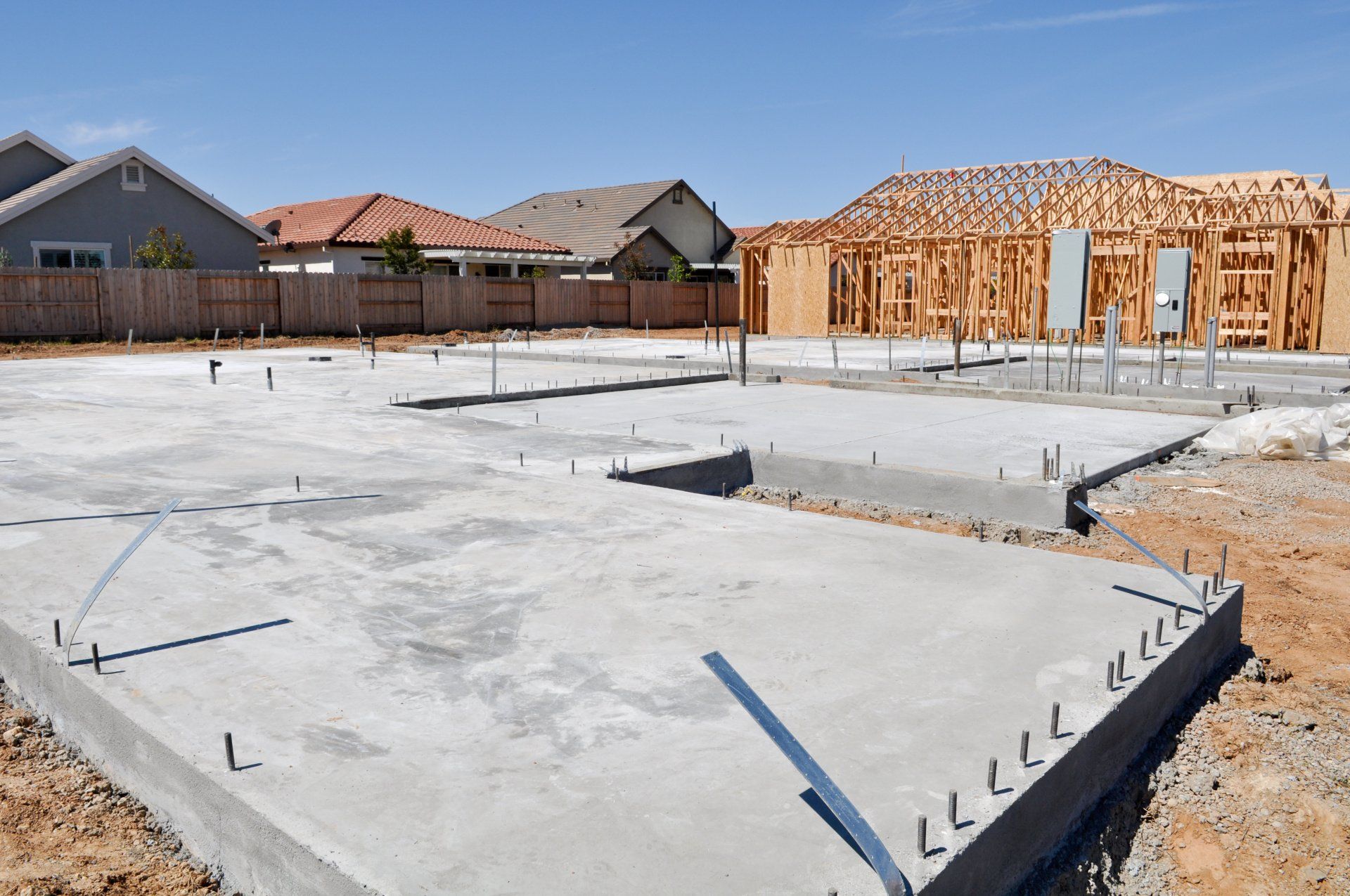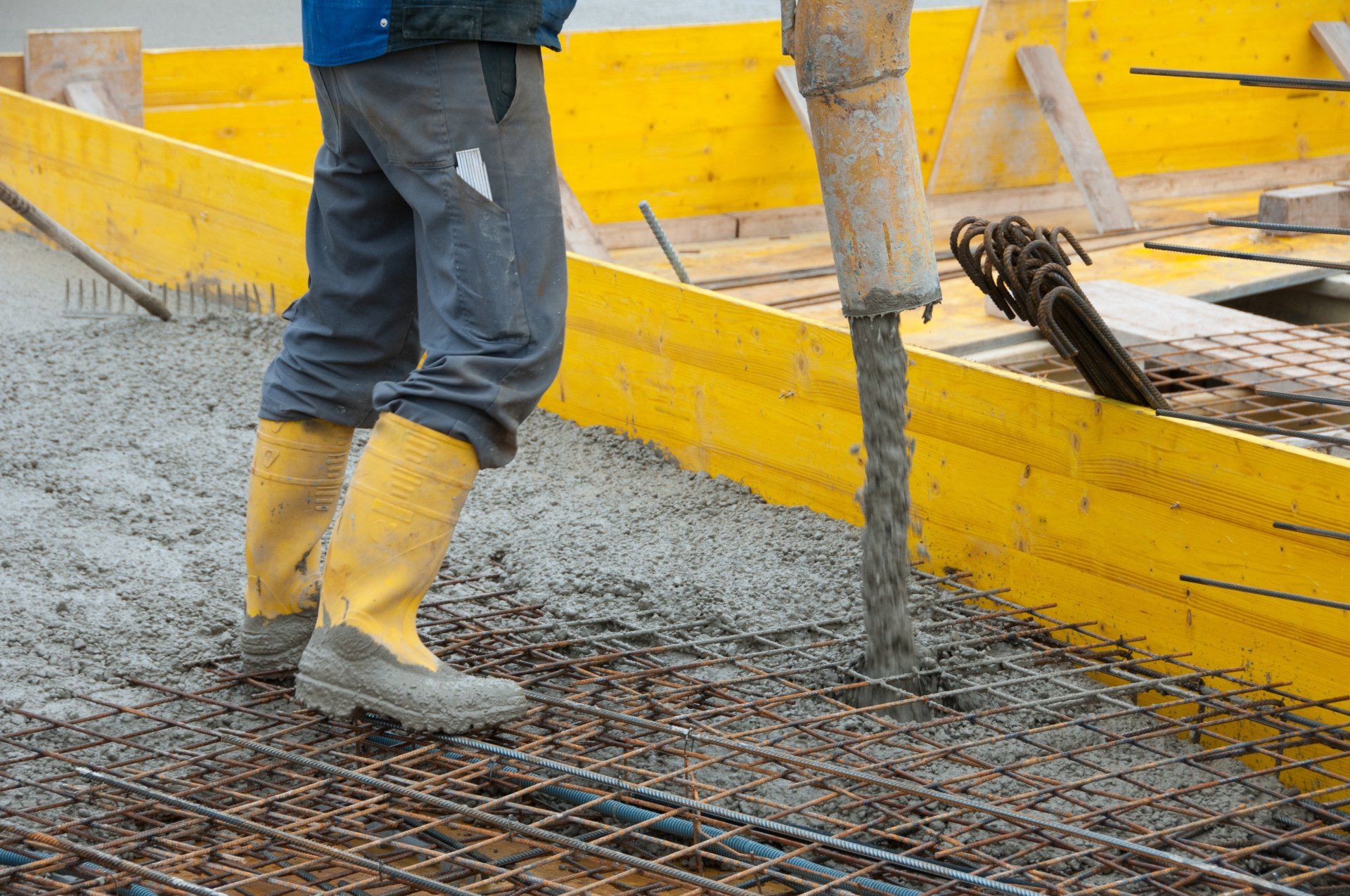Concrete Pueblo CO
Reliable Concrete Solutions Since 2011
Opting for a concrete slab is always a great option for homes and businesses. Not only is concrete one of the most highly regarded building materials, but it is also the most popular option among residential and commercial designers! Concrete, like wheel, has been around since the early ages. Its rigid durability and manipulable properties make it a solid option for constructing foundations, driveways, sidewalks, and much more. The advent of concrete as a common medium for construction came from the Roman Empire where it was utilized primarily in roadways.
Today, concrete has become a staple of modern civilization as
grand
structures tower over metropolitan areas like those of New York, Chicago, and yes; our quaint town of Pueblo, Colorado. There are many reasons why a property owner would side with concrete to build their structure. Here at Pueblo Concrete, we believe that every customer deserves a solid place to build their forever home or place of business. Our concrete is always pressure tested and guaranteed to last longer.
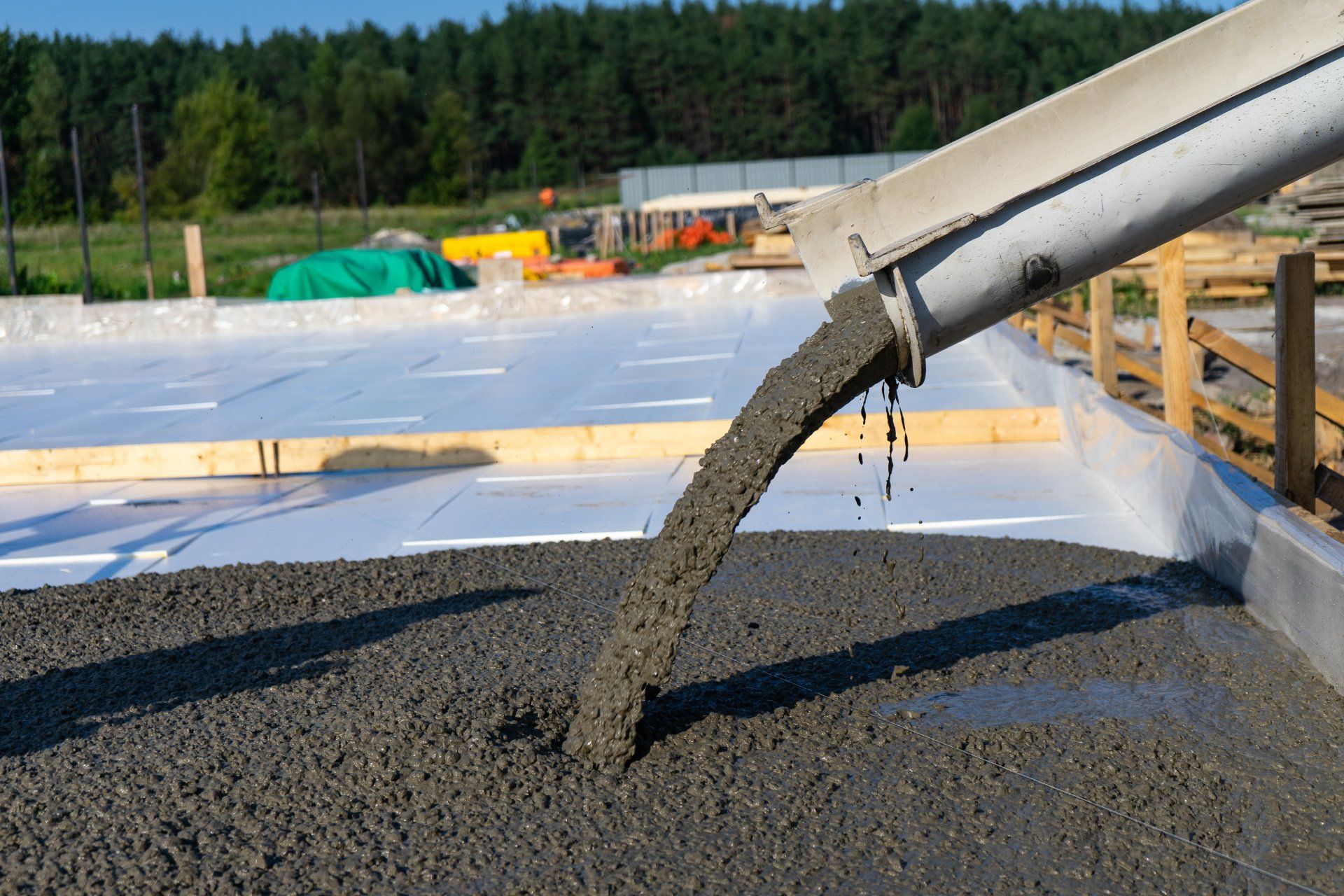
Request a Quote
Contact Us
Our friendly staff is always looking for ways to better serve our customer’s needs. We can handle many facets of concrete construction and creation. Our crew handles everything from driveway replacement or installations to commercial projects and industrial concrete construction. We are a team that is committed to quality above all else and we intend to continue making a name for ourselves as one of the most trusted contractors in Pueblo.
We adhere strictly to all state laws and regulations regarding zoning, licensing, and insurance. Safety, quality, and affordability are cornerstones of our business that we bring with us to all jobs. We are a licensed and insured concrete contractor, which means that each customer can rest assured knowing that they are receiving a professional service with adequate liability protection. We have never had a major accident or had to file a claim with Workers Compensation because we strive for safety and quality the first time.
Pueblo Concrete: A Name You Can Trust
Pueblo Concrete stands as a trusted leader in the industry, delivering unmatched expertise and a strong commitment to quality. Their extensive experience ensures each project is handled with precision and professionalism, resulting in durable and visually striking concrete solutions. Customers consistently praise their outstanding service, highlighting their reliability and dedication to satisfaction. Pueblo Concrete combines innovative techniques with premium materials, guaranteeing long-lasting results that exceed expectations. With a proven track record of success and an unwavering focus on excellence, Pueblo Concrete is the partner you can depend on for all your concrete needs, from residential driveways to large-scale commercial projects.
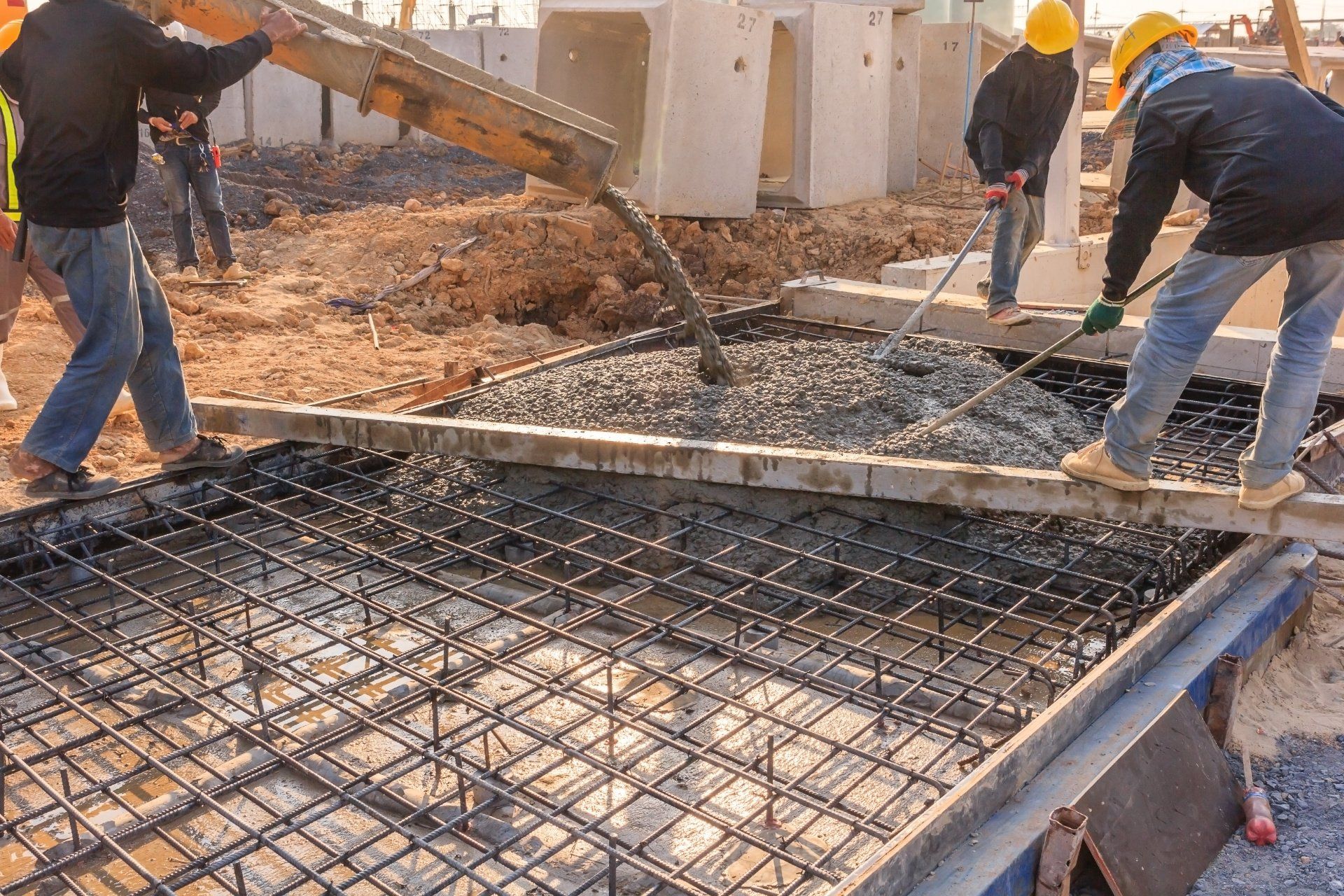
Our Services
Concrete can be used in many different forms and fashions. We take concrete and turn it into a work of art that is sure to satisfy the scrutinous critic. Concrete is our passion, which is why we go above and beyond to offer many services that will fit the needs of home and business owners alike.
Can you pour concrete during winter?
Pouring concrete in cold weather can be a challenge. To make sure your concrete cures properly, you need to be aware of the temperature restrictions. Concrete must be poured at temperatures above 50 degrees Fahrenheit to cure correctly. If the temperature is too cold, the concrete will not cure and you will end up with a mess on your hands! In this blog post, we will discuss tips for pouring concrete in cold weather so that you can avoid any problems.
One of the best tips for pouring concrete in cold weather is to use a concrete mix that is designed for colder temperatures. There are a few different types of mixes that are available, so be sure to ask your contractor which one is best for your project. Another tip is to make sure the area where you will be pouring the concrete is prepped correctly. This means that the ground should be level and free of any debris or obstructions. If you are working in a cold climate, it is also important to make sure your crew stays warm and hydrated. And lastly, always follow the instructions on your concrete mix bag closely to ensure proper curing.

When concrete is poured in cold weather, it will take longer to cure. In general, you should expect the concrete to take twice as long to cure when it is cold. So if your project calls for a week of curing time, you will need to allow for two weeks in cold weather. Be sure to keep an eye on the weather forecast and plan accordingly. If there is a chance of freezing temperatures during the curing process, you may want to consider delaying your project until warmer weather.
4000 psi concrete is a type of concrete that is designed for heavier loads. It is often used in commercial construction projects. 4000 psi concrete is also known as high-strength concrete. This type of concrete has a compressive strength of at least 4000 psi. It is made with a higher proportion of cement and other aggregates, which makes it stronger than regular concrete. Using an accelerator and hot water with 4000 psi aggregate will be the best option for pouring during the chilly parts of the year.
If you are using 4000 psi concrete for your project, be sure to consult with your contractor to make sure it is the right fit. This type of concrete is not always the best option for every job. It is important to weigh the pros and cons before deciding if 4000 psi concrete is the right choice for you.
How to Choose the Right Concrete Contractor
Concrete is a material that is widely used in the construction industry. It is strong and durable, making it an ideal choice for a variety of applications. However, concrete is also a complex material, and working with it requires a high level of skill and experience. As such, it is important to choose the right concrete contractor for your project.
When it comes to pouring concrete, it is always best to have a team of professionals working on the project. This is because there are a number of dangers associated with the process, and having multiple people on hand can help to mitigate these risks.
Some of the dangers associated with pouring concrete include:
- Burns - Pouring concrete involves working with hot materials. If these materials come into contact with skin, they can cause severe burns.
- Inhalation of fumes - Pouring concrete also generates fumes which can be harmful if inhaled.
- Musculoskeletal injuries - Working with concrete can put a lot of strain on the body, and this can lead to musculoskeletal injuries.
- slips, trips and falls - There is a lot of movement involved in pouring concrete, and this can lead to slips, trips and falls.
When choosing a concrete contractor, there are a number of factors to consider. First, you need to decide what type of project you are undertaking. Concrete is used for a variety of applications, from foundations and structural elements to driveways and sidewalks. Each application requires a different level of expertise, so you need to make sure the contractor you choose is experienced in the type of work you need.
Once you have determined the scope of your project, you can begin searching for contractors. There are a number of ways to find qualified concrete contractors in your area. You can ask family and friends for recommendations or referrals, search online directories, or contact professional organizations such as the National Ready Mixed Concrete Association. Once you have a list of potential contractors, you can start the vetting process.
When interviewing potential concrete companies for the job, there are a few key questions to ask. First, you need to make sure the contractor is licensed and insured. This will protect you in the event that something goes wrong during the project. Second, you should ask about the contractor's experience level and the amount of time they have spent practicing in the industry. Ideally, you want to choose a contractor who has experience with projects similar to yours, whether it relates to residential or commercial construction. Finally, you should ask for a price estimate to gauge how much the project will cost. Be sure to get estimates from multiple contractors so you can compare them and pick the one that satisfies your needs accordingly. Once you have chosen a contractor, you will need to sign a contract. This document will outline the scope of work, payment terms, contingencies, among many other things. Be sure to read the contract carefully before signing it as it is a binding agreement between two parties.
Once the contract is signed, you will need to make payments according to the agreed upon contact. The payment schedule will be outlined in the agreement, but typically, a deposit is required upfront for the project to begin. The remainder of the payment is usually due when the project is completed. Choosing the right concrete contractor is essential to ensuring a successful execution of a project. By taking the time to search for a qualified concrete specialist and carefully review their qualifications, you can be confident that your project will be in good hands.
Comparing pavers and concrete
Pavers are a contemporary choice for driveways and walkways because they are durable, attractive, and affordable. Pavers come in many different colors and styles, so you can find the perfect style to match the theme of a home. They can also be installed in a variety of patterns, which adds visual interest to your driveway or walkway which increases home value as a result. However, there are a few cons of pavers. One is that they require more maintenance than concrete. They need to be regularly swept and cleaned to prevent dirt and debris from accumulating in the joints between the pavers. Pavers can also shift over time, which can create uneven surfaces.
Concrete is a classic choice for driveways and walkways. It's durable and affordable, and it can be poured in any shape or size. Concrete is also low-maintenance, which is a big plus. However, concrete does have a few drawbacks. One is that it can crack over time, which can create an unsightly appearance. Additionally, concrete can be slippery when wet, which can pose a safety hazard.
In the end, the choice between pavers and concrete comes down to personal preference and budget constraints. Pavers are more expensive than concrete, but they can add more value to a home. Concrete is less expensive, but it may not look as attractive as pavers. Ultimately, the best choice for a driveway or walkway depends on the specific needs and preferences of the homeowner. Concrete offers a unique set of options in the form of decorative prints, colors, and designs. Homeowners looking for a unique paver-like appearance with the durability of concrete should explore the stamped options that concrete has to offer.
How to Tell When to Replace Concrete
Concrete is a popular building material for a good reason. It is strong and durable, making it perfect for projects such as driveways, sidewalks, and foundations. However, like all materials, concrete has a lifespan. Over time, it will break down and need to be replaced. If you are unsure whether or not your concrete needs to be replaced, keep reading!
One of the most obvious signs that your concrete needs to be replaced is large cracks. Cracks are not only unsightly, but they can also cause tripping hazards. If left unaddressed, small cracks can turn treacherous sizable ones. If you notice any cracks in your concrete, it is a good indicator that it is time to have it replaced.
Another sign that your concrete needs to be replaced is if it has started to sink. This usually happens when the ground underneath the slab starts to settle. If you notice that your concrete is no longer level, it may be a sign that it is time for a repair or replacement.
Concrete has a long lifespan if it is properly maintained. With proper care, a slab can last for 20-30 years. However, if it is not maintained, its lifespan will be shortened considerably due to natural environmental factors like ambient temperature, climate moisture, and air pressure variations. Concrete needs to be sealed every few years to protect it from the elements and keep it looking new. When it is left unsealed and left exposed it will be susceptible to water that can seep in and cause the concrete to break down.
In addition to sealing, concrete also needs to be cleaned regularly. Mud, dirt, and other debris can build up on the surface of the concrete and cause it to deteriorate. If you notice that your concrete is no longer looking clean and shiny, it is time for a cleaning.
If you are taking care of your concrete and it is still showing signs of wear, this could be a strong sign that a replacement may be needed in the near future. Depending on the severity of the damage, you may be able to patch up small areas without having to redo the entire slab. However, if the damage is widespread, it is best to start from scratch. Replacing concrete is a big job, but it is worth it in the long run. With proper care, your new concrete will last for many years to come!
Residential and Commercial Concrete
When it comes to pouring concrete for residential slabs and commercial pads, there are some key differences to consider. Residential concrete is typically poured in smaller quantities and with less heavy equipment than commercial concrete. This is because residential jobs often require less square footage and are therefore easier to manage with a smaller crew. Additionally, residential concrete often has a lower PSI rating than commercial concrete, meaning that it may not be as strong and durable as the concrete used for commercial pads. Conversely, commercial concrete is poured in larger quantities and often requires heavy equipment such as cranes and pumps. The PSI rating for commercial concrete is generally higher, ensuring the strength and durability needed for heavy use. While the process for pouring concrete for residential slabs and commercial pads may differ, both require a skilled team and attention to detail to ensure a strong and lasting result.
Pueblo Concrete: Where Customer Care Defines Excellence
Pueblo Concrete stands apart by putting customer care at the core of every project. Our customer-first philosophy means we take the time to truly listen, understand your needs, and tailor solutions that fit your vision and budget. From your first call to the completion of your project and beyond, we maintain clear, consistent communication so
you’re always informed and confident in the process.
We go the extra mile with personalized service—flexible scheduling, thorough site assessments, and proactive maintenance guidance to ensure long-lasting results. We see every project as a relationship, not just a transaction, and we’re committed to your satisfaction at every step.
Choosing Pueblo Concrete means partnering with professionals who value your property as much as you do, delivering results that last and service that exceeds expectations. Experience the Pueblo Concrete difference—customer care you can trust, from start to finish.
Your Vision, Our Concrete: Exceeding Expectations with Pueblo Concrete
At Pueblo Concrete, our primary goal is to ensure your complete satisfaction. We understand that every concrete project is a significant investment, and we are dedicated to delivering results that not only meet but exceed your expectations. Whether you need a new residential driveway, a custom patio, or a large-scale commercial foundation, our team has the expertise and commitment to handle it all with precision and care.
Our dedication to quality is evident in every job we undertake. We use only premium materials and employ skilled craftsmen who pay close attention to every detail. This ensures a final product that is both incredibly durable and visually appealing. From the initial consultation to the final finishing touches, we prioritize clear communication and superior service to make the entire process seamless and stress-free.
For a reliable partner who will satisfy all your concrete needs, look no further than Pueblo Concrete. Contact us today for a consultation.
At Pueblo Concrete, we know how important your schedule is. That’s why we focus on delivering every project on time, whether it’s a residential driveway or a commercial foundation. Our experienced team uses efficient project management and proactive communication to avoid delays and keep your job moving smoothly. We anticipate challenges, adapt quickly, and never compromise on quality. Clients count on our professionalism, reliability, and dedication to meeting deadlines. With Pueblo Concrete, you can trust that your project will be completed promptly and to your satisfaction—because your timeline matters to us as much as it matters to you.
More Than Concrete: Pueblo Concrete’s Commitment to Community
At Pueblo Concrete, our roots run deep in the community we serve. We believe that building strong neighborhoods is just as important as pouring strong foundations. Our commitment goes beyond business—we are dedicated to supporting local initiatives, creating jobs, and partnering with other local companies to keep our economy thriving. From sponsoring youth sports teams to participating in community improvement projects, we actively invest our time and resources where they matter most.
We see every project as a chance to strengthen the community we all call home. When you choose Pueblo Concrete, you’re not just hiring a contractor for a superior result; you’re partnering with a business that genuinely cares about the well-being and growth of our city.
Support a company that gives back. Choose Pueblo Concrete for your next project and help us build a better Pueblo together.



